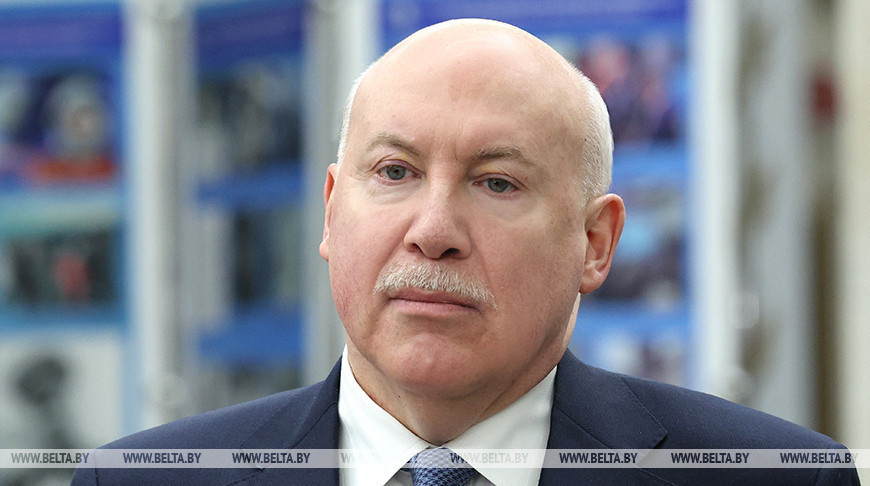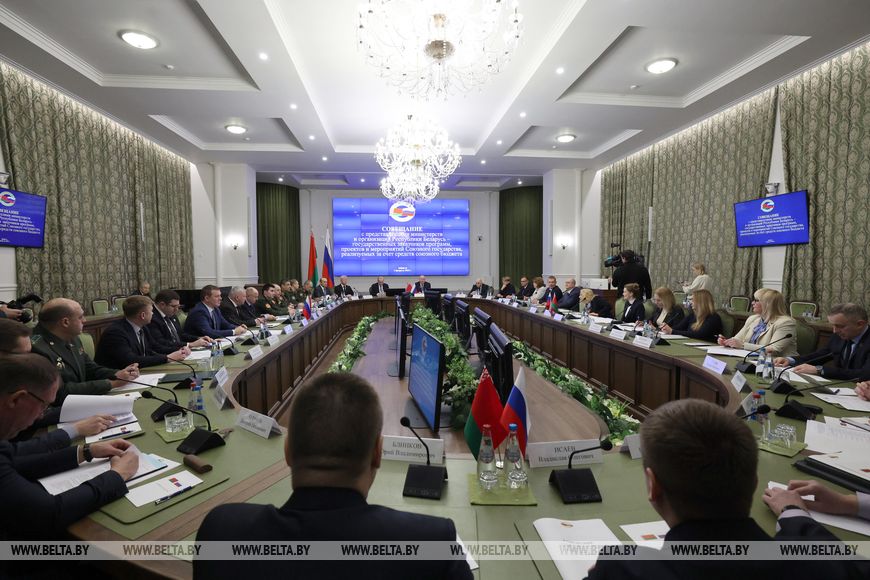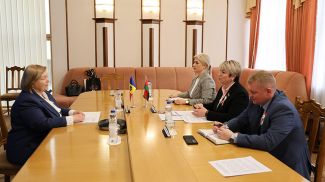
MINSK, 6 February (BelTA) – The Belarus-Russia Union State has implemented 78 programs estimated at a total of over RUB60 billion, and it is very important to make the most of these programs in the interests of domestic economies and integration, State Secretary of the Union State Dmitry Mezentsev said before the start of a meeting hosted by the National Academy of Sciences. The meeting is designed to take stock of progress to implement the Union State programs and events and to review the Union State budget spending in 2024, BelTA has learned.
“It is for a reason that Aleksandr Lukashenko has paid special attention in recent months to scientists’ work (which also concerns partnerships with Russian scientists) and has urged scientists to monetize research outputs and make a meaningful contribution to the socio-economic development of Belarus,” the state secretary of the Union State noted. “Commercialization is a focal point of collaborations between scientists of Belarus and Russia.”

First Deputy Chairman of the Presidium of the National Academy of Sciences of Belarus, Academician Sergei Chizhik emphasized that today, in the context of new challenges, it is important for scientists from both countries to determine promising areas of work. Traditionally, priority is given to top-notch solutions that can benefit the economy in multiple ways. Previously, space and computer technology were the focus of domestic science, but today the emphasis should be placed on artificial intelligence. According to the academician, a joint program in the field of AI may be launched in the future.
“We have been cooperating with a large number of Russian research institutes since Soviet times. Research teams interact in all kinds of fields: biology, mechanics, space exploration. Of course, not all projects make the cut to be included in the Union State programs. It is a complex and lengthy process. Nevertheless, scientific collaborations continue outside such programs,” Sergei Chizhik noted.
The participants of the meeting will discuss the implementation of 18 programs and seven events of the Union State, most of which are related to defense, security, law enforcement, defense industry and military-technical cooperation; there are also individual programs related to social and economic matters.
“It is for a reason that Aleksandr Lukashenko has paid special attention in recent months to scientists’ work (which also concerns partnerships with Russian scientists) and has urged scientists to monetize research outputs and make a meaningful contribution to the socio-economic development of Belarus,” the state secretary of the Union State noted. “Commercialization is a focal point of collaborations between scientists of Belarus and Russia.”

First Deputy Chairman of the Presidium of the National Academy of Sciences of Belarus, Academician Sergei Chizhik emphasized that today, in the context of new challenges, it is important for scientists from both countries to determine promising areas of work. Traditionally, priority is given to top-notch solutions that can benefit the economy in multiple ways. Previously, space and computer technology were the focus of domestic science, but today the emphasis should be placed on artificial intelligence. According to the academician, a joint program in the field of AI may be launched in the future.
“We have been cooperating with a large number of Russian research institutes since Soviet times. Research teams interact in all kinds of fields: biology, mechanics, space exploration. Of course, not all projects make the cut to be included in the Union State programs. It is a complex and lengthy process. Nevertheless, scientific collaborations continue outside such programs,” Sergei Chizhik noted.
The participants of the meeting will discuss the implementation of 18 programs and seven events of the Union State, most of which are related to defense, security, law enforcement, defense industry and military-technical cooperation; there are also individual programs related to social and economic matters.













